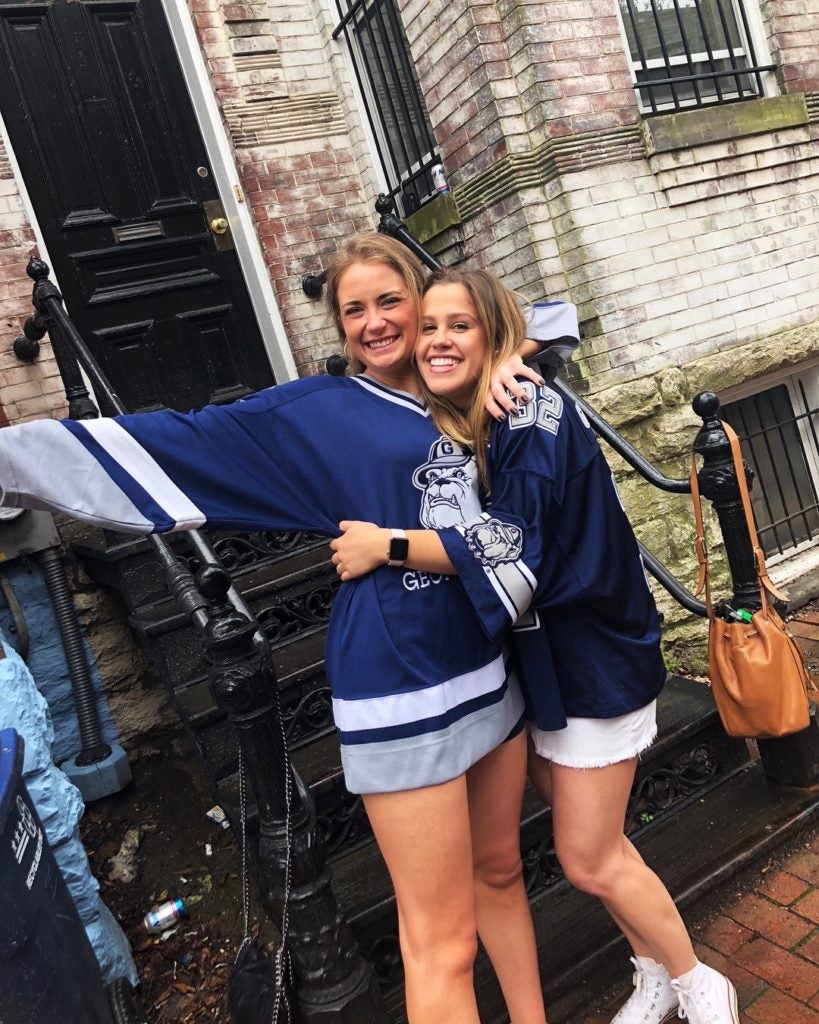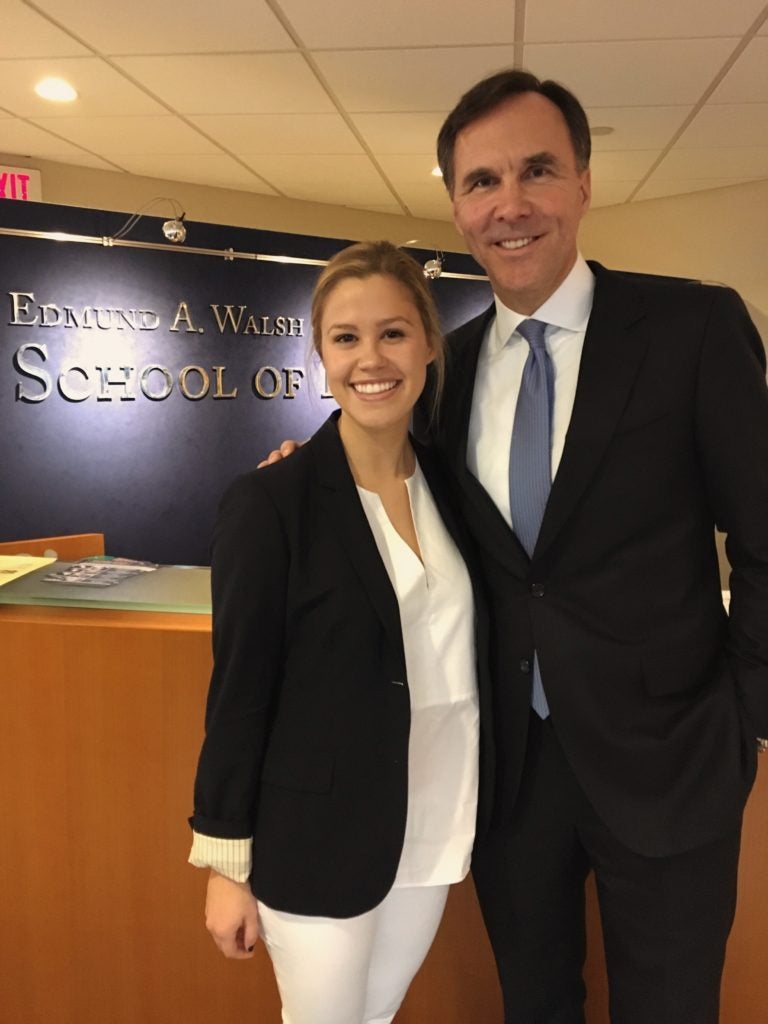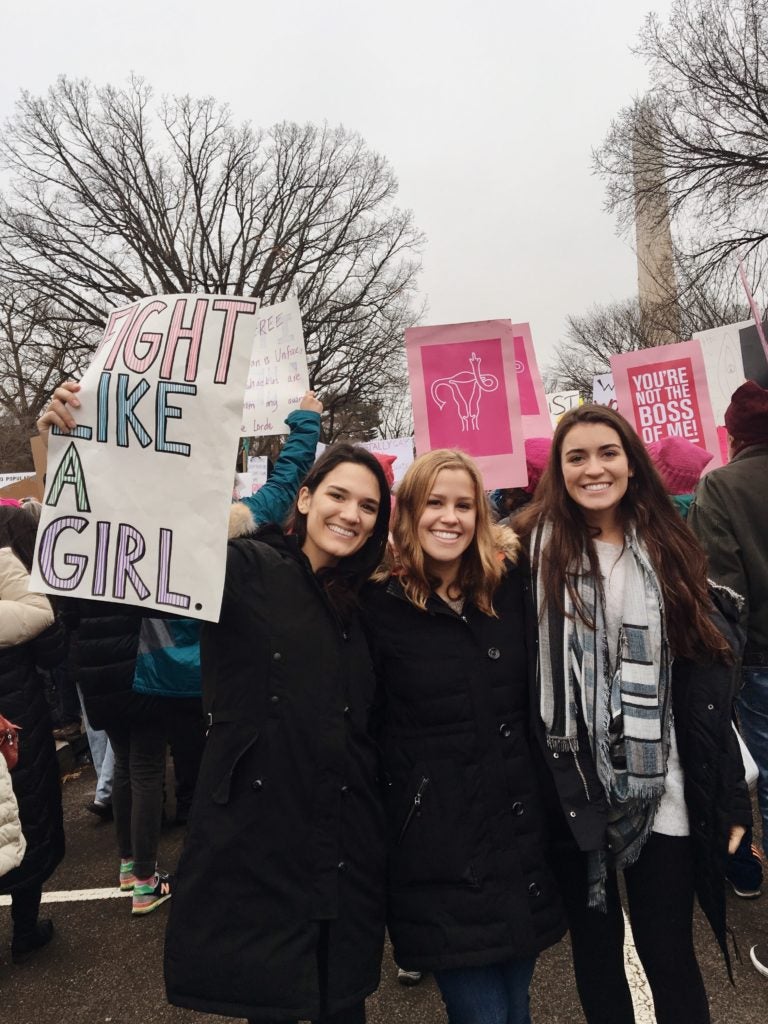 Aislinn McNiece
Aislinn McNiece
SFS, Class of 2018, International Political Economy
Lafayette, California
Language: Spanish
Minor: Spanish
Study Abroad: Barcelona, Spain (Summer 2016), Prague, Czech Republic (Fall 2016)
Proseminar: Politics of International Economics with Professor Abraham Newman
On-Campus Activities: GUWIL (GU Women in Leadership), Alpha Kappa Psi (co-ed business fraternity), GU Pre-Law Society, SFS Communications Office
Non-GU Activities: Intern at management consulting firm Schaffer&Combs (San Francisco), Marketing and Advertising Intern for the Major League Baseball Office of the Commissioner (New York City)
Title: Aislinn McNiece (SFS’18) Appreciates Diversity of Experience and Intellectual Community at Georgetown
A peak Georgetown moment for International Political Economy major Aislinn McNiece (SFS’18) came in her junior year when she conducted an interview with Canadian Minister of Finance Bill Morneau during his visit to SFS. “The interview happened right after the inauguration of President Trump, who had campaigned against international trade and the North American Free Trade Agreement (NAFTA) in particular,” McNiece explains. “Minister Morneau was in town to advocate for the agreement, and I had the opportunity to ask him about both his role in domestic finance and about Canadian-American trade relations at the beginning of a new presidency. As an IPEC major who has studied international trade in depth, speaking with a foreign minister of finance was a remarkable experience and something that I believe could only happen, thanks to our D.C. location, on the Hilltop.”
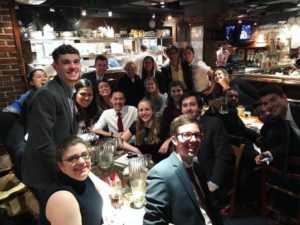
Another favorite for McNiece is her time in “long-time idol and feminist icon” Professor Madeleine Albright’s American National Security Toolbox class. “I cried when I got off the waitlist to her class, because my mom, aunt, and grandmother had talked to me for so long about how impressive and incredible she is,” McNiece says. However, it wasn’t Albright’s former Secretary of State title that left an impression on McNiece. “The greatest thing is…she is a professor first. She is deeply committed to her students, and her experiences in the policy-making world augment her teaching to make her class a true can’t-miss Georgetown experience.” McNiece is appreciative of Albright’s “irreverent and informative” anecdotes about her career and feels grateful to have “formed a relationship with the first female Secretary of State.”
A Faculty Mentor and Class Favorites
Albright wasn’t the only professor who had a significant impact on McNiece’s Georgetown experience. She gained a mentor in Professor James Vreeland after spending many office hours working on her individual research and economic modeling in Vreeland’s Economic Transparency and Political (In)Stability class. “Thanks to those hours (and hours) spent working with him, I got to know one of the most supportive engaging, and dedicated professors I’ve ever had. Vreeland and I discussed graduate school and career path options, the benefits of a Georgetown education, and personal motivations that guided us through it all. Even when I wasn’t his student, I kept going to his office hours for help on my thesis, guidance for the next steps, and weekly catch-ups; Tuesday nights in Lauinger with Vreeland will remain one of the best memories of my SFS academic career.”
When thinking about favorite classes at Georgetown, Vreeland’s class International Organizations makes the list for McNiece, along with International Trade with Dean Mitch Kaneda, and International Political Economy with Professor Marc Busch. All these classes “deeply impacted” McNiece’s understanding of political economy. She recalls being in Kaneda’s class when she realized that her major was the right fit, “I was fascinated by the application of economic theory to real-world political systems.”
Georgetown and SFS Intellectual Community
Coming from Lafayette, California, McNiece expected Georgetown to have students from around the world. However, she was not expecting the diversity of nationalities and range of experiences represented by her fellow students. “My very first class at Georgetown was my Proseminar with about 12 students in it,” McNiece recalls. “Half of them were from other countries: Ecuador, South Korea, Turkey, and Singapore among them. The other half were from all over the United States. The range of experiences of these peers was unmistakable and invaluable in that class; that diversity became a trend throughout my Georgetown experience, inside and outside of the classroom.”
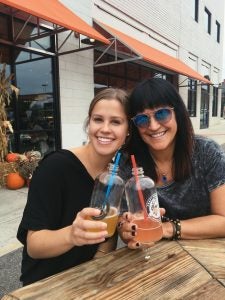
McNiece took advantage of another kind of diversity — the assortment of cuisines in Washington, D.C., “D.C. has a seriously blossoming foodie scene, and exploring all the different cuisines and restaurants in the area has been a great way to break ‘the Georgetown bubble.’” She started a food Instagram account @aislinneats to document her adventures and points to the Georgetown Farmers’ Market stands, as well as the Mediterranean restaurant Zaytinya and Indian restaurant Rasika as favorites. “Branching out across restaurants around the district has led me to cuisines and dishes I might never have tried anywhere else, like Ethiopian food, a D.C. staple.”
McNiece will move to Boston after graduation to start a job as an Associate at L.E.K. Consulting, but she will miss the intellectual community at Georgetown made up of “people [who] are passionate about what they are doing.” “Within the SFS, I’ve met a group of people passionate and knowledgeable about understanding the political, economic, and cultural systems on which the world runs. I can’t imagine discussing the effects of river systems on relations between Syria and Turkey or the effects of global trading policy on Zara’s supply chain anywhere else but the SFS (and I’ve actually taken classes that covered both topics).”
If McNiece could give some advice to incoming Georgetown freshmen, she suggests investing in people.
Don’t just meet people; get to know them. There are so many people, experiences, and stories at Georgetown, and, even though four years isn’t nearly enough to learn them all, they are worth knowing.
